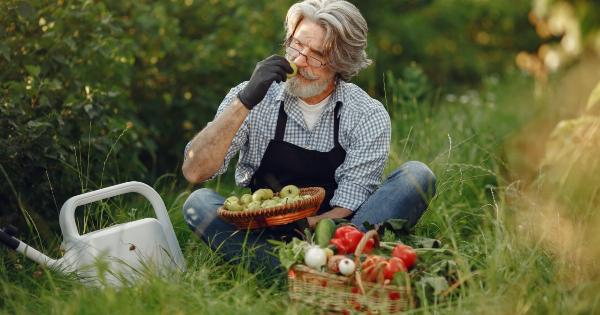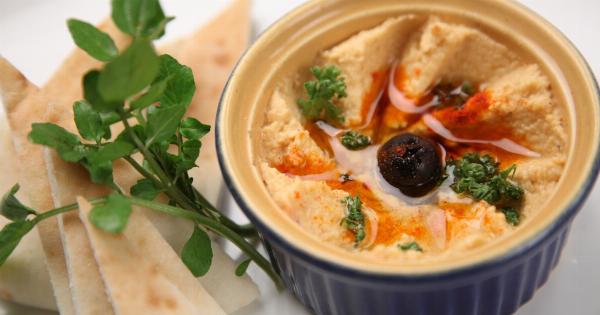Prostate cancer is one of the most common types of cancer among men, with millions of cases diagnosed each year. Prevention strategies play a crucial role in reducing the incidence and impact of prostate cancer.
While genetic factors and age undoubtedly contribute to the risk of developing prostate cancer, there is increasing evidence to suggest that diet also plays a significant role. In this article, we will delve into the relationship between diet and prostate cancer prevention, exploring the foods and nutrients that can help lower the risk of this deadly disease.
The Impact of Diet on Prostate Cancer
Research studies have consistently shown that diet can influence prostate cancer risk.
Unhealthy dietary habits, such as high consumption of red and processed meats, saturated fats, and sugary foods, have been associated with an increased risk of prostate cancer. On the other hand, adopting a diet rich in fruits, vegetables, whole grains, and certain nutrients has been linked to a reduced risk of developing prostate cancer.
Let’s explore some of the key dietary components that play a role in prostate cancer prevention.
Fruits and Vegetables
A diet rich in fruits and vegetables has been strongly associated with a decreased risk of prostate cancer. Fruits and vegetables are excellent sources of antioxidants, vitamins, minerals, and dietary fiber.
These components have been shown to protect against various types of cancer, including prostate cancer. It is recommended to consume a variety of colorful fruits and vegetables, such as berries, leafy greens, cruciferous vegetables (broccoli, cauliflower, Brussels sprouts), and citrus fruits.
Cruciferous Vegetables
Cruciferous vegetables are particularly beneficial for prostate health. These vegetables contain a compound called sulforaphane, which has been shown to have anti-cancer properties.
Sulforaphane has the ability to inhibit the growth of prostate cancer cells and promote their death. Adding cruciferous vegetables to your diet, such as broccoli, cauliflower, kale, and cabbage, can contribute to a lower risk of prostate cancer.
Tomatoes
Tomatoes and tomato-based products, such as tomato sauce or tomato juice, contain a powerful antioxidant called lycopene. Lycopene has been extensively studied for its role in prostate cancer prevention.
Research suggests that lycopene helps to reduce prostate cancer risk by inhibiting the growth of cancer cells and reducing inflammation. It is recommended to include cooked tomatoes or tomato products in your diet to maximize the absorption of lycopene.
Fatty Fish
Fatty fish, such as salmon, mackerel, and sardines, are rich in omega-3 fatty acids. These healthy fats have anti-inflammatory properties and have been shown to help lower the risk of prostate cancer.
Omega-3 fatty acids can also help regulate hormone levels, which is important in maintaining prostate health. Including fatty fish in your diet on a regular basis can be beneficial for prostate cancer prevention.
Soy Products
Soy products, including tofu, tempeh, and soy milk, contain compounds called isoflavones. Isoflavones are phytoestrogens, which means they have a similar structure to estrogen, the female hormone.
Research suggests that isoflavones may help reduce the risk of developing prostate cancer by interfering with the activity of male hormones that stimulate tumor growth. Incorporating moderate amounts of soy products into your diet can be a healthy choice for prostate cancer prevention.
Green Tea
Green tea is widely recognized for its health benefits, including its potential role in prostate cancer prevention. Green tea contains antioxidants called catechins, which have been shown to inhibit tumor growth and promote cancer cell death.
Studies have suggested that regular consumption of green tea may help reduce the risk of prostate cancer. Drinking 2-3 cups of green tea per day can be a valuable addition to a prostate-friendly diet.
Healthy Fats
While it’s important to limit the consumption of saturated and trans fats, it’s equally important to include healthy fats in your diet.
Foods rich in monounsaturated fats (e.g., olive oil, avocados, nuts) and polyunsaturated fats (e.g., seeds, fatty fish, soybeans) have been associated with a lower risk of prostate cancer. These fats have anti-inflammatory properties and can help maintain healthy cell function and hormone balance.
Whole Grains
Switching from refined grains to whole grains can have a positive impact on prostate cancer prevention. Whole grains, such as brown rice, whole wheat, oats, and quinoa, are high in fiber, vitamins, minerals, and antioxidants.
These components have been linked to a reduced risk of developing prostate cancer. Aim to replace white bread, pasta, and rice with whole grain alternatives to reap the benefits.
Limited Red and Processed Meats
Red and processed meats have been implicated in increasing the risk of prostate cancer. These meats contain compounds that can damage cells and increase inflammation in the body.
High consumption of red and processed meats has been associated with a higher risk of prostate cancer development. It is advisable to limit the intake of red and processed meats and opt for leaner protein sources, such as poultry, fish, or plant-based proteins like legumes and tofu.
Adequate Hydration
Staying properly hydrated is essential for overall health, and it may also help in preventing prostate cancer. Adequate hydration supports optimal bodily functions and helps maintain a healthy prostate.
Drinking plenty of water throughout the day is a simple yet effective step to include in your prostate cancer prevention plan.
Conclusion
While diet alone cannot guarantee the prevention of prostate cancer, a balanced and prostate-friendly diet can significantly lower the risk of developing this disease.
By incorporating fruits, vegetables, cruciferous vegetables, tomatoes, fatty fish, soy products, green tea, healthy fats, whole grains, and limiting red and processed meats, you can create a dietary pattern that promotes prostate health. Furthermore, staying hydrated and maintaining a healthy lifestyle, which includes regular exercise and avoiding smoking, can further enhance your prostate cancer prevention efforts.
By making informed dietary choices and adopting a proactive approach to your health, you significantly improve your chances of reducing the risk of prostate cancer.





















